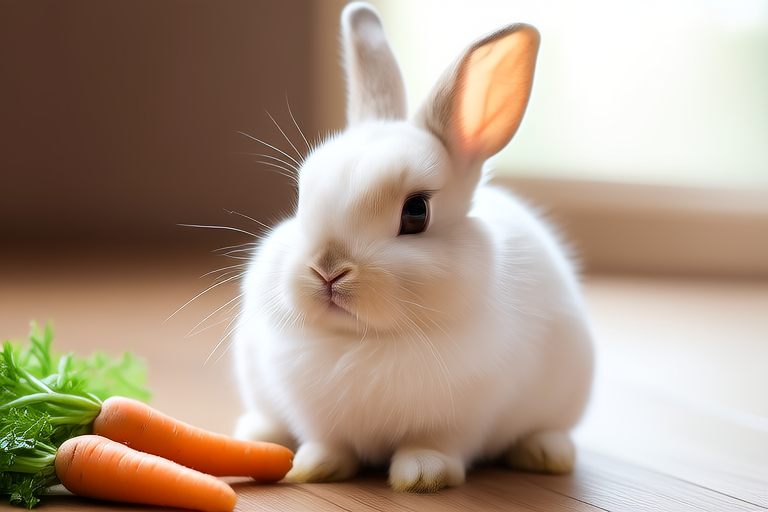How to Care for Your Tiny, Tame Dutch Dwarf Rabbit Buddy
Welcome to the delightful world of Dutch Dwarf Rabbits! These charming, compact creatures bring joy and companionship into homes across the globe. With proper care and attention, your Dutch Dwarf Rabbit will thrive and become a cherished member of your family. This guide covers everything you need to know about caring for your tiny, tame Dutch Dwarf Rabbit buddy.
Basic Care
Dutch Dwarfs are among the smallest breeds of domestic rabbits, typically weighing between 2 and 2.5 pounds. Their small size means they require less space than larger breeds, making them ideal for apartment living. However, this doesn’t mean they can be neglected; Dutch Dwarfs still need ample space to move around comfortably. A spacious cage, at least 24 inches long, 24 inches wide, and 18 inches high, provides enough room for them to stretch out and play. Always ensure the cage has good ventilation and is placed away from direct sunlight and drafts.
Diet
The cornerstone of your Dutch Dwarf’s health is its diet. Fresh hay, such as timothy or orchard grass, should make up the bulk of their daily intake. Hay aids digestion and keeps teeth healthy by promoting natural chewing. Offer a fresh supply daily, and replace it regularly to prevent mold growth. Pellets designed for dwarf breeds should be provided in limited quantities (about 1/4 cup per day) to avoid obesity. Additionally, fresh vegetables like carrots, romaine lettuce, and parsley can be offered as treats. Remember to introduce new foods gradually to avoid digestive upset.
Housing
A secure, comfortable living space is crucial for your Dutch Dwarf. The cage should have solid flooring to prevent injuries from wire mesh, which can cause foot problems. Provide soft bedding made from shredded paper or recycled newspaper products. Avoid cedar or pine shavings, as they may irritate your rabbit’s respiratory system. Ensure the cage is placed in a quiet area, away from direct sunlight, drafts, and extreme temperatures. Regular cleaning of the cage is essential to maintain hygiene and prevent odor buildup.
Exercise
Regular exercise is vital for your Dutch Dwarf’s physical and mental well-being. In addition to time spent in their cage, allow your rabbit supervised playtime outside of its enclosure. A safe, enclosed area free from hazards, such as electrical cords or toxic plants, provides ample opportunity for exploration and activity. Daily exercise helps prevent obesity and promotes a healthy lifestyle. Rotate toys and activities to keep your rabbit engaged and stimulated.
Grooming
Grooming your Dutch Dwarf is relatively simple due to their short, dense fur. Weekly brushing with a soft-bristled brush helps remove loose hair and prevents matting. During shedding season, more frequent brushing may be necessary. Bathing is rarely required, as it can stress your rabbit and disrupt their coat’s natural oils. Instead, spot clean any soiled areas with a damp cloth. Regular nail trimming is important to prevent overgrowth and discomfort. Consult your veterinarian if you’re unsure how to trim your rabbit’s nails safely.
Health Tips
Regular veterinary check-ups are essential for maintaining your Dutch Dwarf’s health. Choose a vet experienced with rabbits to ensure they receive appropriate care. Common health issues include dental problems, which can be prevented with a proper diet rich in hay. Keep an eye out for signs of illness, such as lethargy, loss of appetite, or changes in litter box habits. Early intervention can often prevent minor issues from becoming serious problems. Vaccinations are generally not necessary for indoor rabbits, but discuss specific needs with your veterinarian.
Bonding Activities
Building a strong bond with your Dutch Dwarf requires patience and consistency. Spend quality time together each day, offering gentle handling and positive reinforcement. Rabbits enjoy interacting with their owners and can learn to respond to commands and tricks. Training sessions using treats as rewards can be both fun and beneficial. Allow your rabbit to explore and play under supervision, fostering trust and confidence. Always respect your rabbit’s boundaries and signals, ensuring interactions remain positive.
Common Pitfalls to Avoid
Many new rabbit owners face challenges when adapting to life with a Dutch Dwarf. One common mistake is overfeeding pellets, leading to obesity. Stick to recommended portion sizes and focus on hay and vegetables instead. Another pitfall is neglecting dental care, which can result in painful conditions. Regular check-ups with your veterinarian can help identify potential issues early. Finally, some owners underestimate the importance of mental stimulation, leading to boredom and destructive behavior. Providing a variety of toys and activities ensures your rabbit remains happy and healthy.
Anecdotes and Experiences
One owner shared that her Dutch Dwarf, named Thumper, became particularly attached to a soft, plush toy she found in a thrift store. Thumper would carry the toy around and even share it during playtime. Another owner discovered that his rabbit, Snowball, loved to watch TV, especially nature documentaries. These unique bonds and quirks highlight the individual personalities of Dutch Dwarfs, making each one a special companion.
In conclusion, caring for a Dutch Dwarf Rabbit requires dedication and attention to detail. By following these guidelines, you’ll provide your tiny, tame buddy with a happy, healthy environment where they can flourish. Enjoy the rewarding experience of sharing your life with a Dutch Dwarf Rabbit, and cherish the moments spent together.
